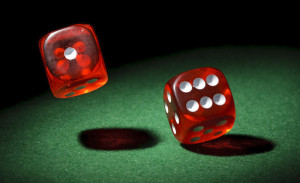by James Scott Bell
@jamesscottbell
 A few weeks ago I got a text from my daughter. It read: “How often do you think about the Roman Empire?”
A few weeks ago I got a text from my daughter. It read: “How often do you think about the Roman Empire?”
A somewhat random question, it seemed, but in my wheelhouse. I texted back: “All the time!” Because I do. Signs of decline and fall abound, and I am mindful of two intractable lessons of history:
- Those who do not learn from history are doomed to repeat it.
- People do not learn from history (indeed, increasingly they do not even know history).
Anticipating a substantive exchange on current events, I was surprised when my daughter texted back a smiling emoji. What, I wondered, was there to smile about?
A few minutes later she called me and laughingly explained this was a social media “thing.” Women were asking men how often they thought about the Roman Empire.
The hilarity of which escapes me.
But the trend was real. In a couple of weeks the hashtag #romanempire had 1.3 billion views on TikTok (which, far from creating in me peals of laughter, fills me with existential dread).
It prompted (not begged, please) a question: How does something as trivial as this become a “thing”?
A short time later I was talking to my daughter on the phone, when she said, “Isn’t it interesting how Taylor Swift has made Travis Kelce famous?” I immediately rejoined, “Honey, Travis Kelce has been one of the best players in football for years!”
She started laughing. Then explained this was another “thing,” women making that statement to men and watching them defend Travis Kelce.
Again, this is funny? (Okay, Boomer). But I love making my daughter laugh, so at least there was that.
Again I ask: why does something like this become a “thing”? Especially with millions of digital jockeys out there trying to create “things”?
Closer to home, we may well ask, why does one book take off to the stratosphere, and another (perhaps even better written in several ways) does not?
Why, with all the fan fiction out there, did Fifty Shades of Grey become the best-selling novel of the last decade (15.2 million print copies)?
Why, with all the fantasy fiction, does one story about a boy wizard follow this trajectory:
- J. K. Rowling, living on government relief, writes Harry Potter and the Philosopher’s Stone. She gets a $4,000 advance.
- 500 copies were published in hardcover.
- 200 were sold, and 300 went to libraries.
- Scholastic buys the U.S. rights, changes the title from Philosopher’s Stone to Sorcerer’s Stone, and releases it in October, 1998.
- In December it hit the New York Times bestseller list and stayed there for 82 consecutive weeks.
- Worldwide, the print copies of the series are north of 500 million.
- As of 2021, JK Rowling’s estimated net worth is around $1 billion
Here’s a quiz for you:
At 68, he may no longer be publishing’s fresh young hotshot; his books sell a fraction of the copies that they used to, and it’s been 19 years since he had a feature film made. Yet every fall, like clockwork, [he] publishes a new [book], and every fall it shoots to the top of the bestseller list…[He] has released 48 consecutive New York Times No. 1 bestsellers, a feat no other writer has matched.
Who is he? Answer below.* But more to the point: why him and not another prolific writer?
Timing? Luck? Zeus?
Of course, no one knows the answer.
In the big antitrust case to prevent Penguin Random House from acquiring Simon & Schuster, PRH CEO Markus Dohle testified that publishers are like “angel investors” that “invest every year in thousands of ideas and dreams, and only a few make it to the top.” When a book is a breakout, it allows the company to take risks in acquiring new books and “betting” on new titles.
In other words, publishing is like shooting craps. I’m not a Vegas guy or a gambler—except nickel backgammon—but I had occasion to be in Vegas twice over the past few years.
I shot craps the first time and came away with $250.
The second time I lost $150, and quit.
But each time I rolled those bones, I did it with hope and a flicker of excitement.
That’s us putting out a new book.
Your job, then, is to keep on writing the best book you can before tossing it online (or to a publisher). While the odds are always long against becoming the “next big thing,” they are considerably better for an improving and producing writer coming away from the table with more chips than they started with.
Writing salable books is work, yes. But make part of it a game, bet on yourself, enjoy the excitement, keep writing.
How do you feel whenever you release a new book? Like a gambler? A naif?
Are you hopeful, excited, nervous, full of dread…or some combination of all?
*Quiz answer: John Grisham.
